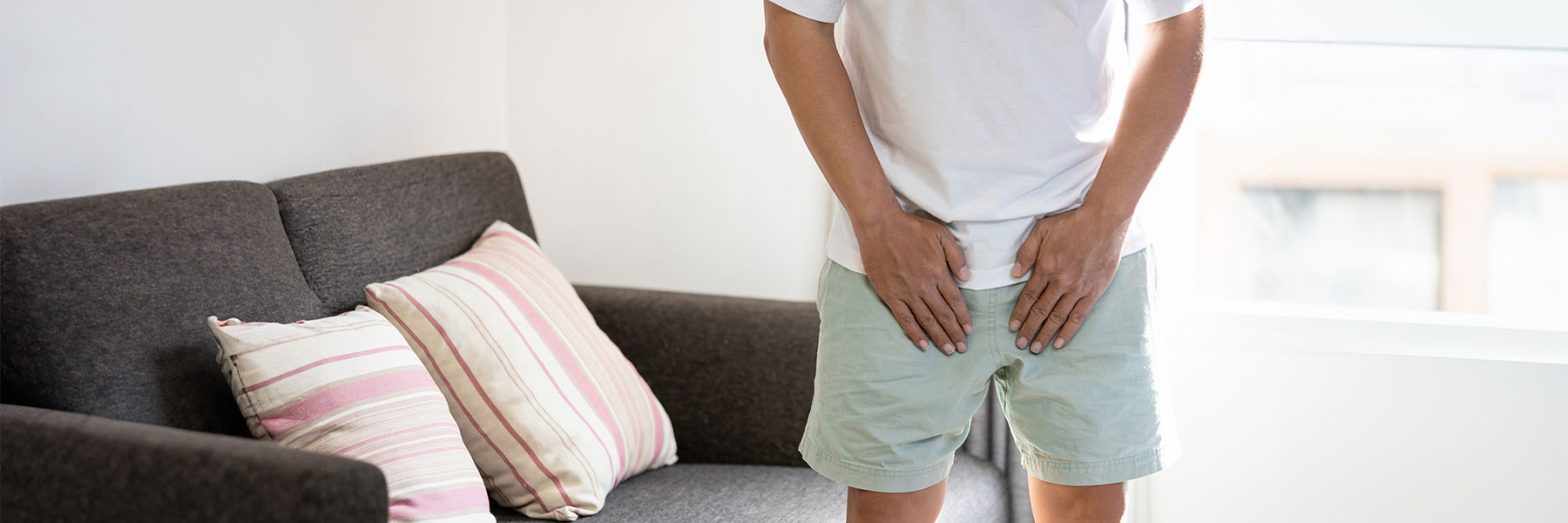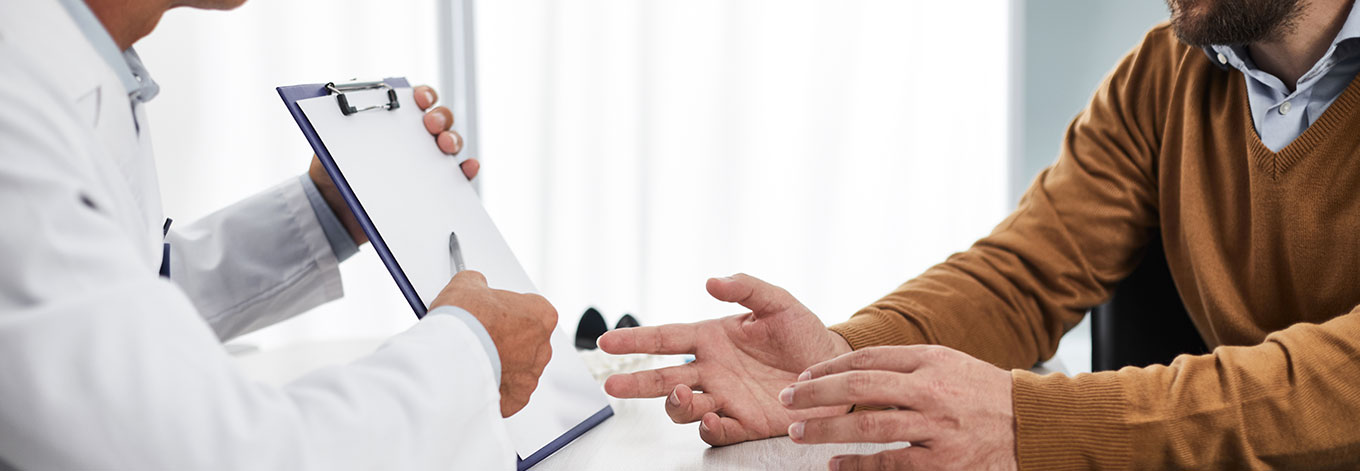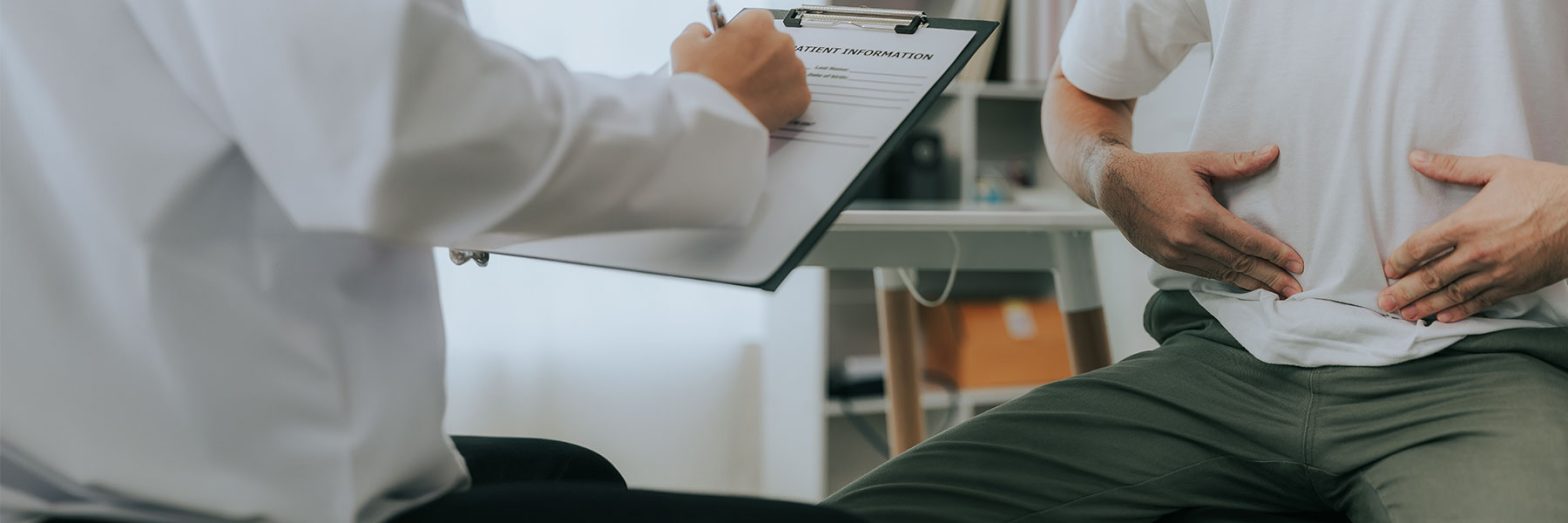
What is an Inguinal Hernia and how to treat it?
Hernias are a prevalent medical condition affecting millions of people globally. They occur when an organ or tissue pierces the surrounding muscle or connective tissue at a weak spot.
Certain types of hernia are more common than others.
In this blog we are going to be focusing on Inguinal Hernias which are one of the most common types of hernias accounting for more than 9 out of 10 hernias.
What is an Inguinal Hernia?
An inguinal hernia is a hernia that occurs in the groin. Men are more likely than women to get inguinal hernias, and they are especially common in middle age. It occurs when a little ring of muscle in the groin is pushed against by an intestinal loop, which eventually causes the muscle fibres to separate. A fatty part of your bowel such as your intestines then have the ability to push though the weak spot in the surrounding muscle wall into an area called the inguinal canal.
Related: What is the most common type of hernia?
What’s the difference between a direct inguinal hernia and an indirect inguinal hernia?
There are two different types of Inguinal Hernia: Direct inguinal hernia and Indirect inguinal hernia. Both are identified by how and when the hernia is formed.
Whereas direct inguinal hernias primarily affect adults and worsen with age, indirect hernias are more common and typically occur in premature babies.
Both types of inguinal hernias cause a lump on either side of the pubis.
| Direct Inguinal Hernia | Indirect Inguinal Hernia |
| Bulge from the posterior wall of the inguinal canal | Passes through the inguinal canal or the groin. |
| Often difficult to feel the defect as it occurs behind the external oblique muscle fibers. | Easily felt in a direct inguinal canal in the abdominal wall. |
| Cannot descend to the scrotum. | Able to descend to the scrotum. |
| Often develops in infancy when the inguinal rings within the abdomen fail to close. | Occurs in adulthood when the abdominal muscle wall becomes weak with increasing age. |
Do I have an inguinal hernia?
An inguinal hernia will appear as a bulge or lump in your groin. For men, it can cause swelling in the scrotum which can be painful.
Usually, the lump will be most noticeable when you are lifting something, and it is likely to disappear when you are lying down.
Not all inguinal hernias have symptoms, if you notice any sign of a hernia, we highly recommend visiting your GP for a formal diagnosis.
What causes an inguinal hernia?
An inguinal hernia is caused by a weakness in the muscle. This is usually down to ageing, as we grow older, our muscles weaken making them prone to developing weak spots.
Anything that involves increased intraabdominal pressure such as persistent coughing, strenuous exercise and heavy lifting can all put you at risk of developing a hernia.
Inguinal Hernia Treatment
Inguinal hernia treatment is dependent on its size, symptoms, and your overall health.
If the hernia is small and not causing symptoms, your doctor may recommend monitoring it over time which is called watchful waiting. They may recommend lifestyle changes to help manage your symptoms which include avoiding heavy lifting and maintaining a healthy weight.
There are hernia supports available which can provide temporary relief by holding the hernia in place.
Surgery is the only treatment for hernias and most inguinal hernias will require surgical repair.
Inguinal Hernia Surgery
There are two types of hernia repair procedures: laparoscopic keyhole repair or open surgery.
At The Private Clinic, our surgeons favour Open Mesh Repair surgery as it can be performed under local anaesthetic and provides reliable repair with a high success rate. Open surgery for hernia repair is the NICE recommended treatment for hernia repair.
During Open Mesh Repair surgery, an incision is made over the hernia. The protruding tissue is pushed back into place and a hernia mesh implant will then be placed over the hole that caused the hernia. The mesh is then left to allow surrounding tissue to grow and hold it in place securely against the wall of the muscle. The incision is then closed, and a dressing will be applied.
Inguinal Hernia Repair Recovery
Your groin may feel sore and uncomfortable following hernia repair surgery. Pain medication should help manage this for the first few days post-op whilst the incision site heals. Your surgeon will provide specific instructions on post-operative care, including lifting restrictions and wound care.
Many patients are comfortable to return to work 2-3 days following hernia surgery depending on the nature of their job role. Heavy lifting and other strenuous activities are to be avoided for at least 4 weeks.
Can you get Inguinal Hernia Repair on the NHS
Hernia repair on the NHS is available, however the criteria to be approved for surgery is very strict with most patients being advised go through a watchful waiting process.
Patients who have been approved for surgery on the NHS are likely to face increased wait times.
Related: Hernia repair on the NHS
Do I need Inguinal Hernia repair?
We believe that your quality of life can be enhanced, and consequences can be avoided with an early diagnosis and suitable treatment. The biggest risk of an untreated hernia is that it can become strangulated. Whilst this is rare, it is very serious and requires urgent surgery.
Private hernia repair at The Private Clinic provides patients with quicker access to consultant surgeons, no waitlists, high levels of care and a dedicated nursing team.
Hernia Repair Surgery at The Private Clinic
- Our consultant surgeon has extensive experience in performing hernia repair surgery.
- Hernia treatment and recovery plan that’s tailored to you.
- With 40 years of expert care, we pride ourselves on putting patients first and delivering exceptional service.
- Fast access to quality hernia care.
- Treatments are carried out in our state-of-the-art London Fitzroy hospital.
- Consistent care with as many consultations and follow-ups as you require from our compassionate team, led by an experienced Consultant.
- 24-hour patient helpline direct to your nursing team and surgeon, which means we are always here to help should you have any concerns.
- Our excellent reputation for patient safety and satisfaction, honest advice and outstanding care mean your journey with The Private Clinic will be a premium
Get in touch
To find out more about Inguinal Hernia treatment or to book a consultation, please call 0333 920 2471 or use our online contact form.







